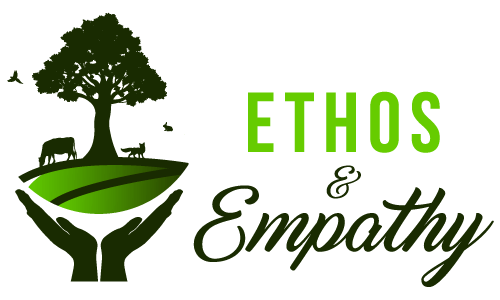Have you ever heard of speciesism?
Many scholars have found that our relationship to the animals is based on speciesism (1). By analogy with racism and sexism, this concept refers to the ideology considering that the lives and interests of animals can be overlooked simply because they are of another species. These thinkers conclude that speciesism is irrational and unfair, because humans are not the only ones to feel emotions and that we should also respect the lives and interests of other sentient beings who share this planet with us. Speciesism is a widespread form of discrimination that billions of animals suffer from today.
Like us, nonhuman animals are feeling creatures who can experience suffering or enjoyment depending on how we treat them. Yet they are subjected to harms we would never inflict on humans. Most of us would agree that it’s unfair to harm humans because of their skin color or sex. Isn’t it also unfair to harm animals simply because they belong to one species instead of another?

Intelligence is not what matters, suffering is.
We show respect for others by trying not to harm them, and helping them when we can. Many people accept that we should respect dogs and cats, and not harm them. But other animals can also suffer because of our daily choices.
Shouldn’t we respect them too?
There are people who say we shouldn’t respect animals because they are less intelligent than we are.
But many humans have lesser intellectual capacities, due to disease, accidents or congenital reasons. It’s clear to most of us that we shouldn’t discriminate against or harm those humans. This shows that, when it comes to respecting someone, what matters is not intelligence or mere species membership. What matters is simply whether they can be harmed or benefited by our actions.
A century ago, it was thought that the animals cannot suffer. Today, not only is it well known by all that animals suffer and feel emotions, but a lot of ethological studies have shown that many also have self-awareness (chimpanzees, bonobos, dolphins, elephants, pigs, magpies, ravens, parrots etc.). At one time humans distinguished themselves from other animals by their ability to manipulate tools, but now we know that more than a hundred animals can use tools.
Animals are beings endowed with mental life, with interests, desires, their own personality and therefore must be regarded as individuals. But despite the scientific advances, our society is still speciesist and still uses them as a resource.
*They are used as laboratory tools, whilst we are being taught that in a civilized society the strong should not harm the weak.
*They are killed in slaughterhouses or die from suffocation in fishing nets, while millions of vegetarians and vegans show that this is not a necessity and while everyone considers it wrong to kill animals without necessity.
*They are legally considered property that can be bought and sold, while everyone knows that animals are not things.
These inconsistencies must stop. We can no longer caress cats and dogs whilst planting our forks in the bodies of another animal who felt emotions and who also had an interest in living the longest and happiest life possible.
Injustices of the past have been abolished or reduced, such as slavery or the low status assigned to women. These issues were also embedded in the collective consciousness to the point that they were thought to be eternal. But history has shown the opposite.
And we can easily imagine that one day slaughterhouses will be considered as a symbol of injustice and barbarism. The fact that many of our contemporaries think it is an urgent imperative to expand our moral circle and include all beings who experience emotion, goes in this direction. As our society is working to end sexism and racism in the same way it must also work for the end of speciesism.
WHAT CAN WE DO?
We can help prevent the suffering and deaths of animals by deciding not to support their exploitation. Learn about veganism and other ways to oppose animal exploitation on our website.
*** Check also: http://www.animal-ethics.org/
(1) To learn about the positions of different philosophers (Tom Regan, GaryFrancione, Steve Sapontzis, Paola Cavalieri, Peter Singer, Stephen Clark, etc.), visit the following website: http://www.cahiers-antispecistes.org/
25/8 International day against speciesism
The information that is written here has been taken from the flyers of WoDeS and Animal Ethics and it was given away in many cities in Greece on the 25th of August.

